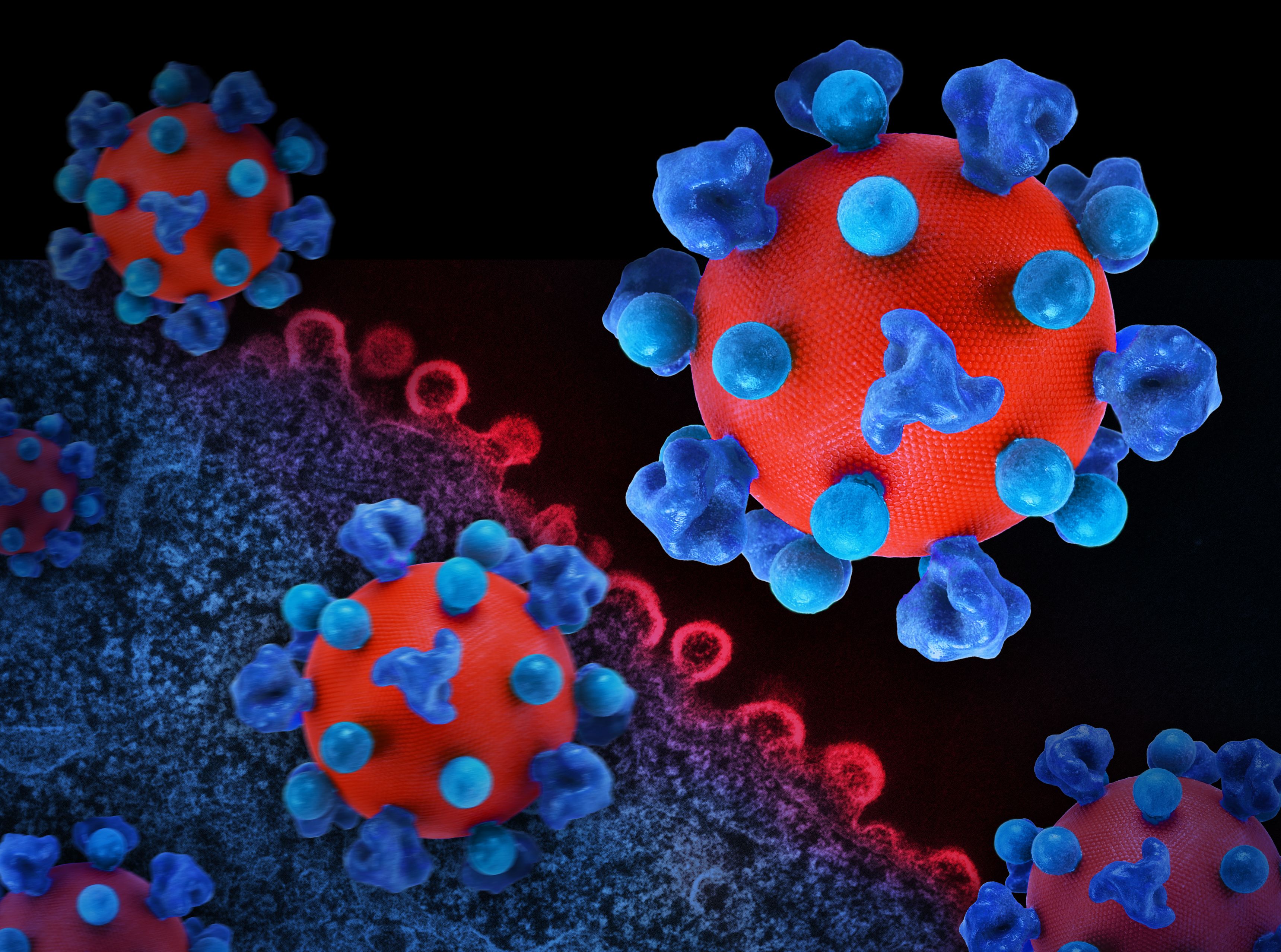Conserving the UK's HIV/AIDS history: The importance of a London memorial
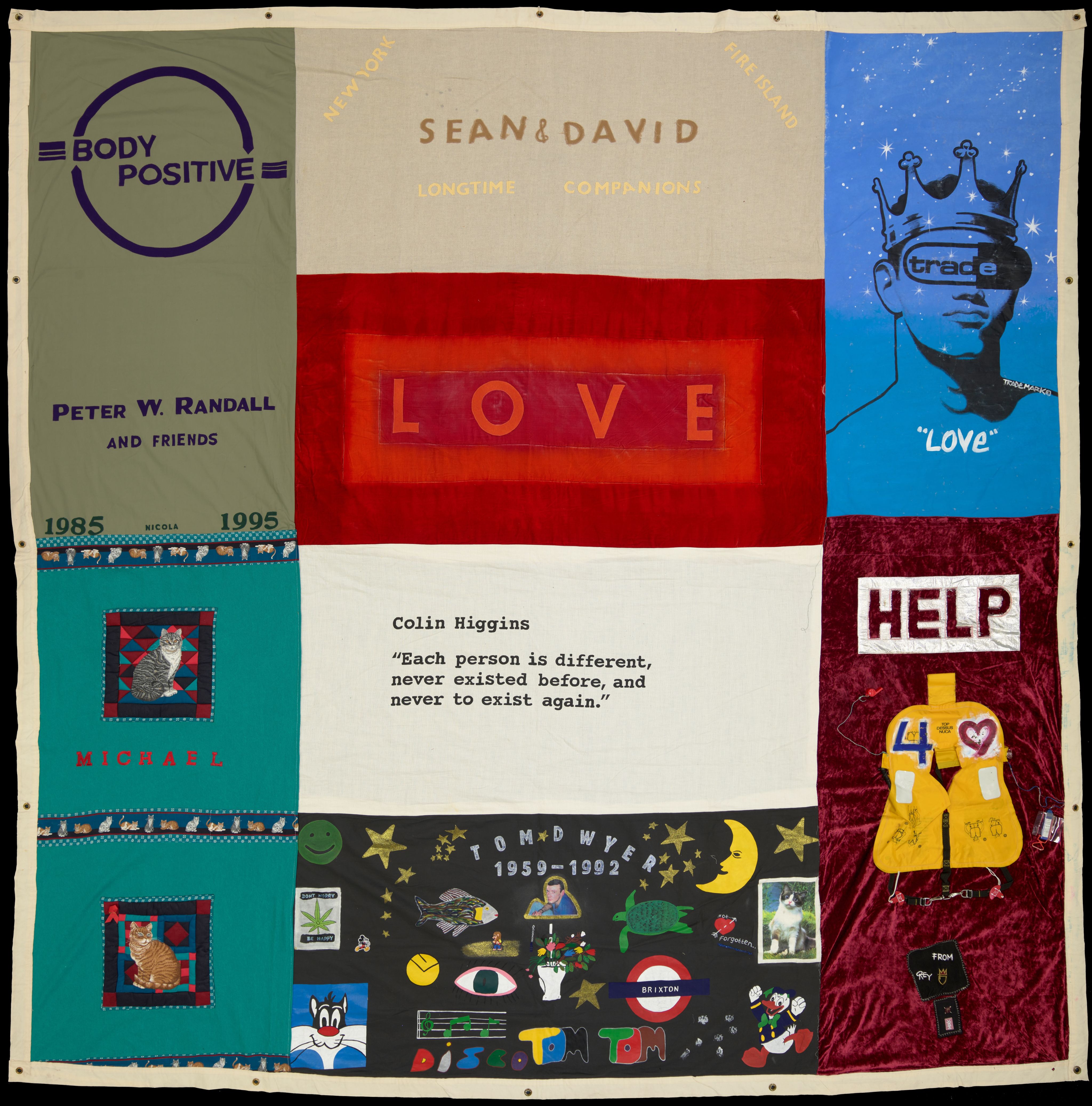
The UK's first reported cases of HIV were identified in December 1981. Since then, it is estimated by the World Health Organisation that 85.6 million people globally have had HIV, and, of these, around 40.4 million have died. Despite these significant figures, as of June 2024, London, which continues to hold the highest rates of HIV across the UK, still does not have a physical memorial site for people to commemorate their lost loved ones.
HIV, short for the Human Immunodeficiency Virus, attacks the immune system which defends the body from disease. AIDS, short for Acquired Immunodeficiency Disorder, is the most advanced stage of HIV.
The acknowledgement and reflection of the history of HIV/AIDS remains grossly minimal within the UK. As a result, AIDS Memory UK has campaigned tirelessly since 2016 for a permanent AIDS memorial in London, with, recently, its voice finally being heard.
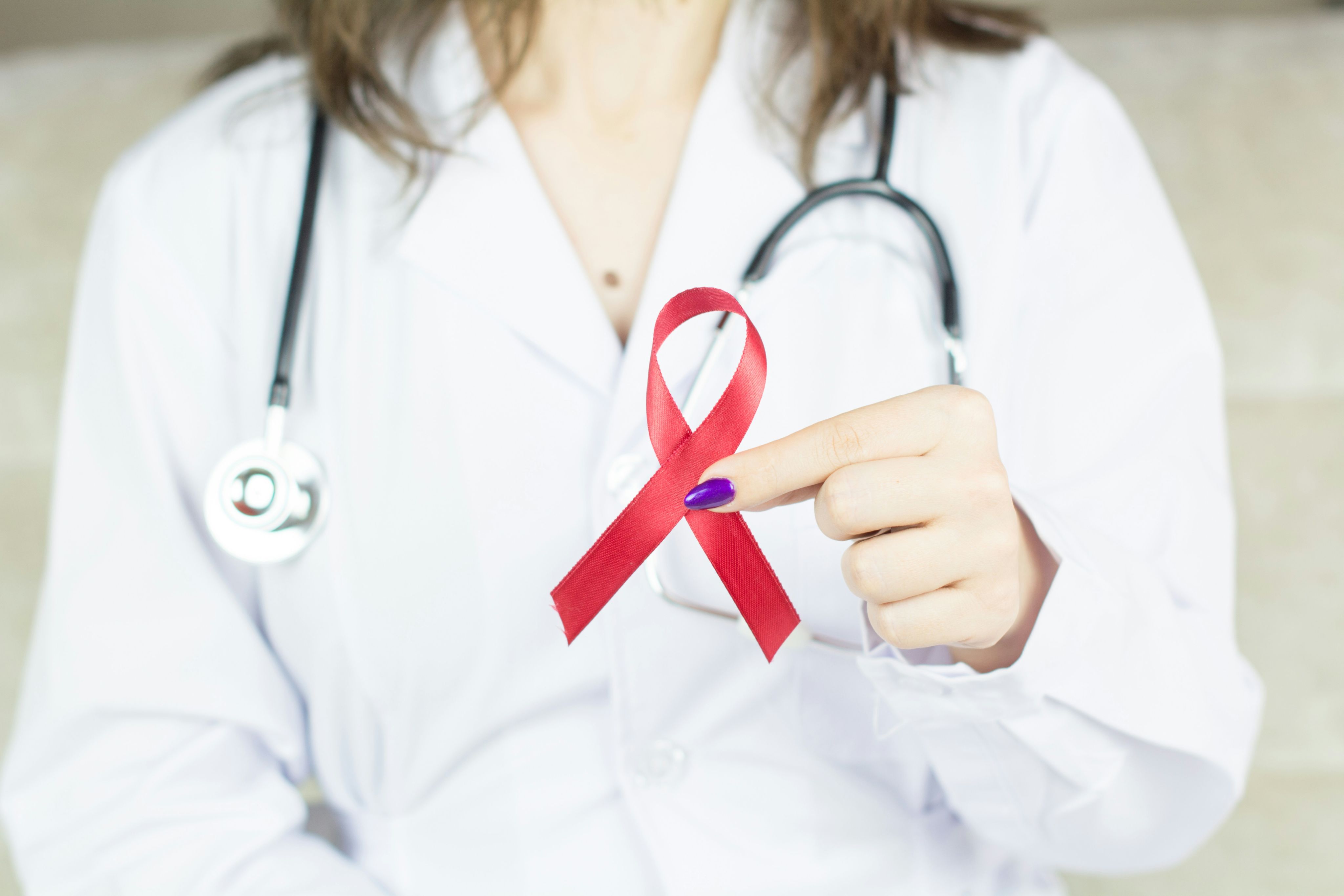
The fight for London's first permanent AIDS memorial
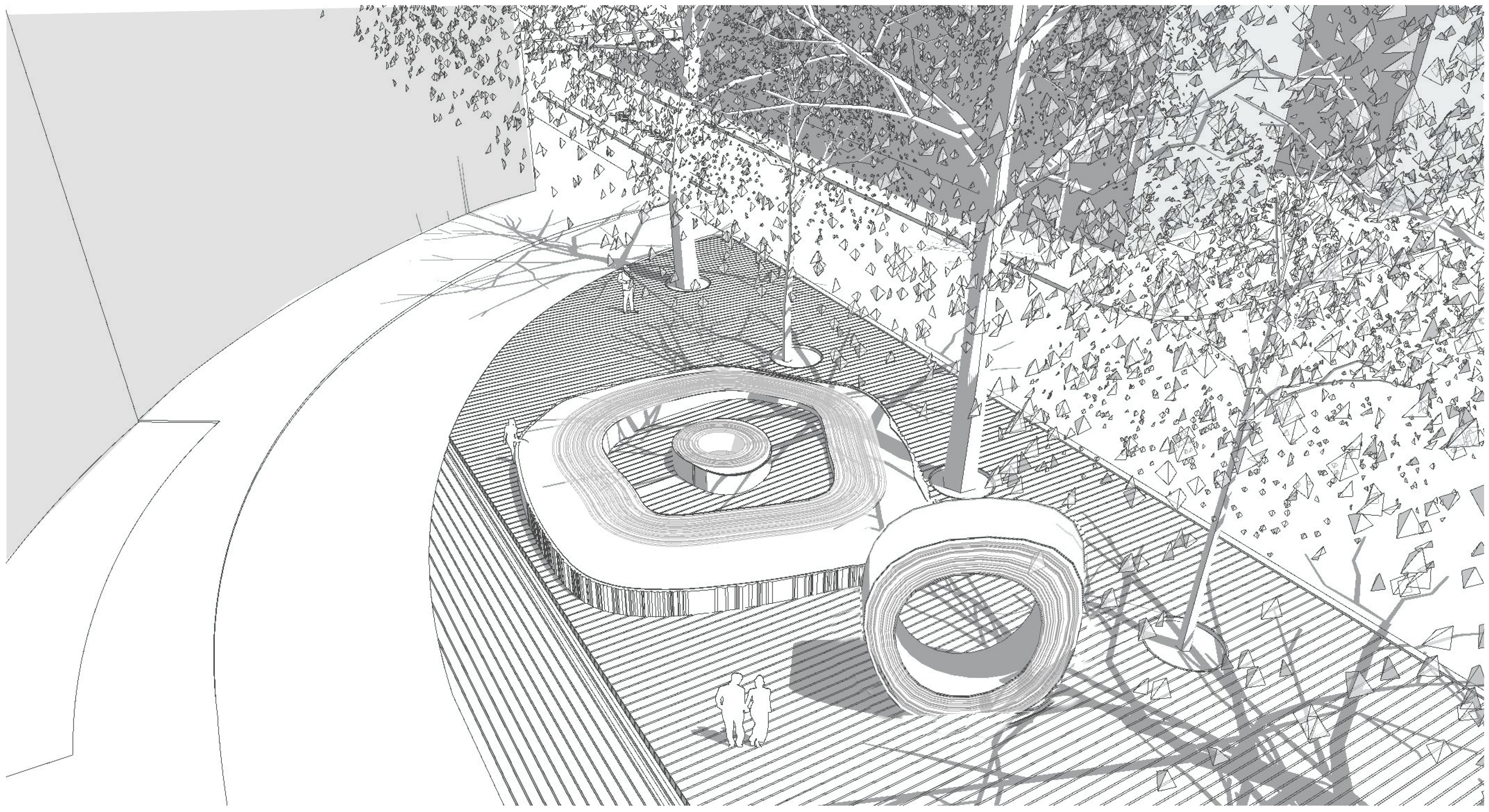
The campaign for London's AIDS memorial began back in 2016.
Ash Kotak, founder and creative director of AIDS Memory UK, met with people who had run previous AIDS Memorial Projects in London and, following discussions and gaining advice, obtained permission from them to start a new project.
After going to Sian Berry at City Hall for her support, Kotak began petitioning the Mayor of London, and the official call by AIDS Memory UK for an AIDS Memorial in London was launched on World AIDS Day of that year (December 1st 2016) via a media campaign.
The London Assembly unanimously supported AIDS Memory UK on the February 8th 2017.
On December 1st 2023, the Mayor of London, Sadiq Khan, announced a new £13,000 of funding from the Commissioner for Diversity in the Public Realm towards London's first HIV/AIDS permanent memorial.
The memorial's location is set to be just metres from the site of the UK's first specialist HIV ward in Fitzrovia which was opened by Diana, Princess of Wales, at the time.
Choosing the designer of the memorial has been a lengthy process, with a panel of representatives from the groups affected deciding from a shortlist that featured five London artists. On June 12th 2024 artist Anya Gallaccio was announced as the designer.
Silvia Petretti, who was a member of the Affected Communities Advisory Board for the memorial, spoke highly of Gallaccio's work.
She said: "We had an amazing selection but her work was my first choice.
"It had a warmth to it and something very spiritual, I think it will be very beautiful and I cannot wait to see it."
Petretti also spoke poignantly about the importance of the memorial being representative of all communities impacted by HIV & AIDS and going beyond the early misperception that it simply affected gay men.
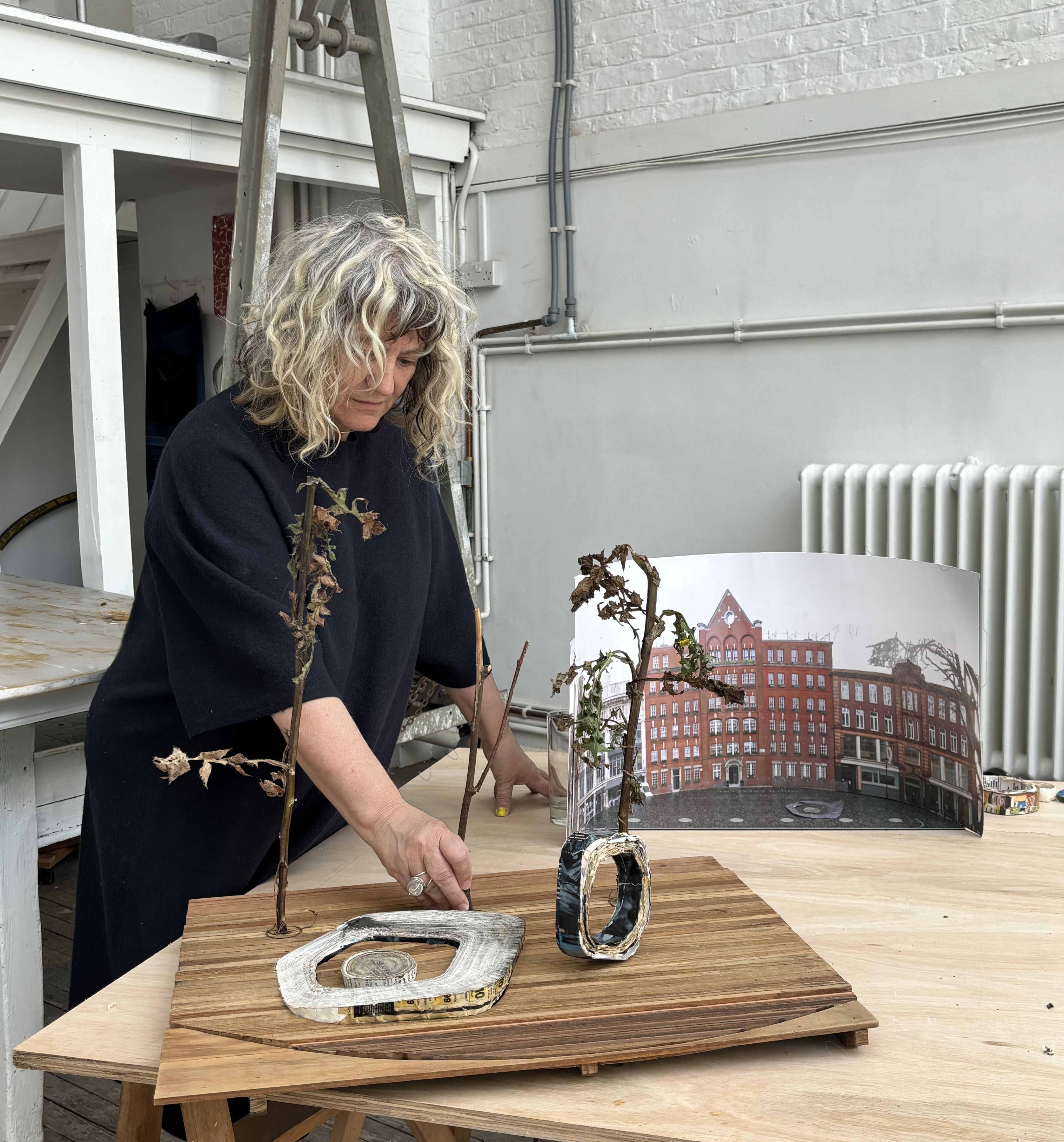
Anya Gallaccio pictured with a maquette of her proposal for the AIDS Memorial in London. Credit - The AIDS Memorial.
Anya Gallaccio pictured with a maquette of her proposal for the AIDS Memorial in London. Credit - The AIDS Memorial.
The future of the London AIDS Memorial
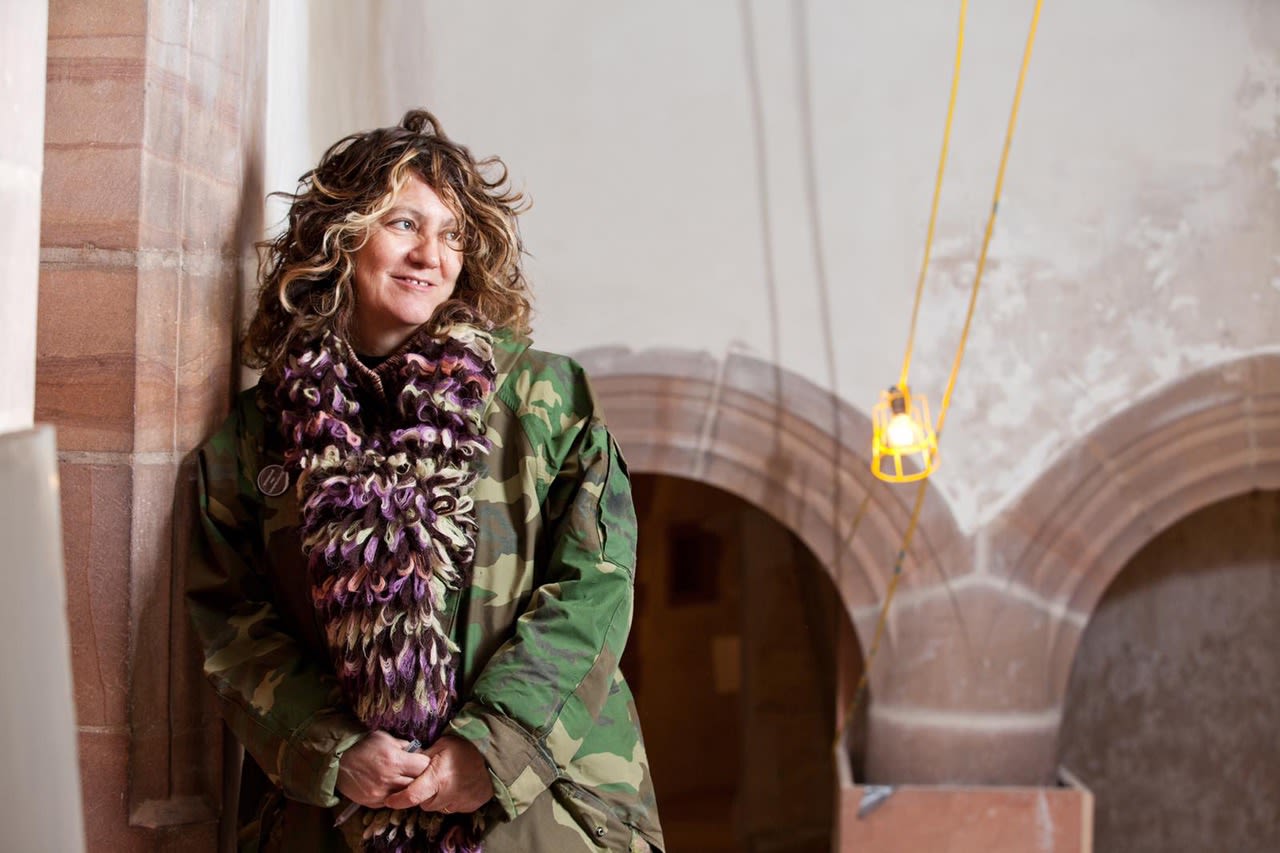
The AIDS Memorial is set to be unveiled on World Aids Day (1st December) 2027.
The physical memorial will also be accompanied by a cultural and events programme to highlight the need for the memorial, alongside a digital memorial to help provide context for the last 46 years of HIV.
Despite the success of the initial campaign, much work is still required to bring the memorial into fruition. This includes obtaining planning permission from Camden Council and fundraising for the memorial's subsequent building.
For Petretti, the need for the memorial in London is unquestionable.
She said: 'Having a memorial brings HIV into view.
"Stigma grows on silence and invisibility, the belief that HIV is something that happens to some other person when actually it could happen to any one of us.
"London is the gay capital of the world, HIV is in the fabric of this city, a memorial will finally bring people together."
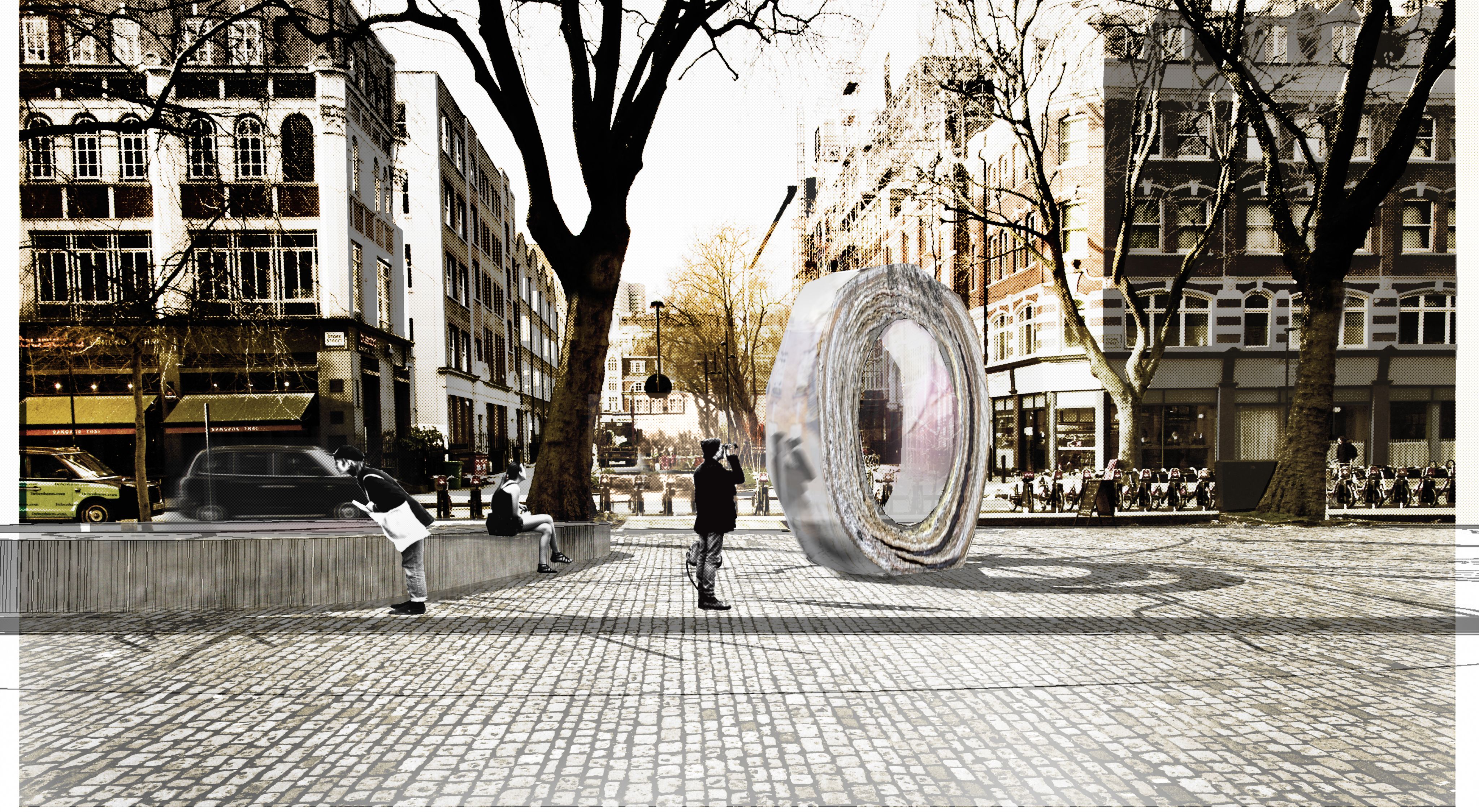
The intersectional experiences of HIV within the UK
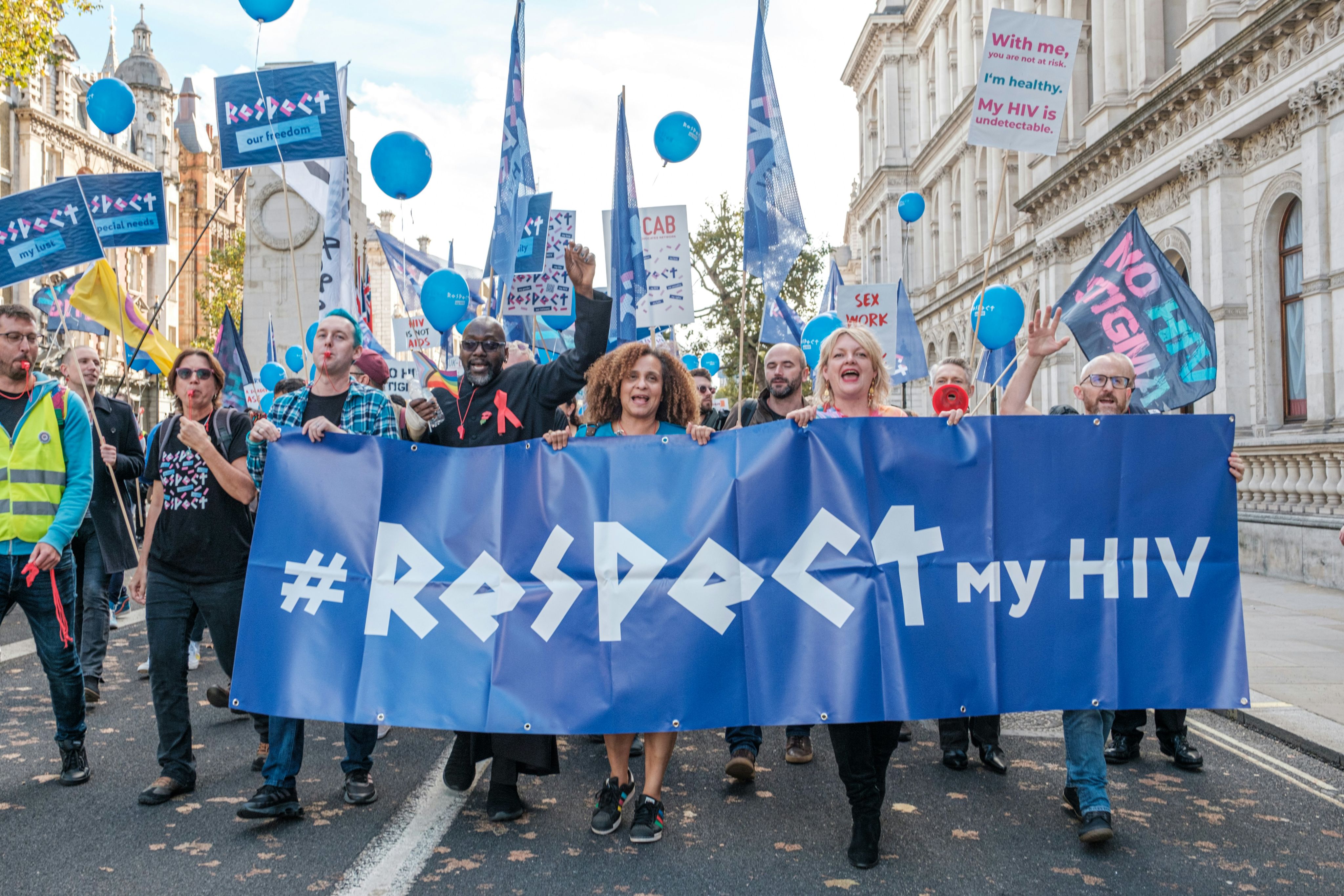
Whilst HIV doesn't discriminate, one's experience of living with HIV has been shown to vastly depend upon external factors such as socioeconomic background, religion, class, gender and access to a wider support system to meet your psychological needs.
Alongside being a member of the Affected Communities Advisory Board for the London AIDS Memorial Silvia Petretti is also the CEO of Positively UK, which provides support for people living with HIV in the UK. She speaks candidly about the unique challenges that come with being a HIV-positive migrant woman.
She said: "In spite of how progressive we think we are, society still holds on to some double standards for women - women are often expected not to have as many sexual partners.
"Particularly for migrant women and Black women or women from ethnic minorities, many of them face layered levels of discrimination and are still so lonely and live in fear with HIV."
Petretti feels strongly that London is in dire need of an AIDS memorial both to educate those with HIV and without.
Emma Cole (pictured to the right), who first found out she had HIV in September 1991, conducts educational talks about her experiences of living with HIV in secondary schools across the UK. Dubbed Positive Voice Talks, she has reached over 360,000 students since she first started in 2002.
Cole acknowledges that whilst historically it was mostly white gay men who were coming forward to get tested and were at the forefront of campaigning for better treatment options and societal views towards HIV-positive individuals, the face of how we understand HIV is changing.
She said: "If I could debunk one myth about HIV it would be that only certain groups can get it.
"Women can and do get HIV, and you don't need to be having frequent sex, in my case all it took was just that one sexual experience."
She stressed the importance of understanding your sexual history and reaching out to women's HIV support groups to meet others that have the lived shared experiences.
For Cole, both a permanent London memorial, alongside annual days such as HIV Long Term Survivors Awareness Day on June 5th, play a vital role in ensuring those that were diagnosed with HIV in the 80s and 90s are not forgotten.
Data collected by the UK Health Security Agency illustrates that women in London remain statistically less likely to get HIV than men, however this gap has vastly reduced since 2013. Likewise, the number of London women testing positive with HIV from 2013 to 2022 has significantly decreased from 555 in 2013 to 336 in 2022.
Their data also reflects racial disparities in HIV numbers, with Black Africans the group most likely to test HIV-positive in England, making up nearly 28% of all cases.
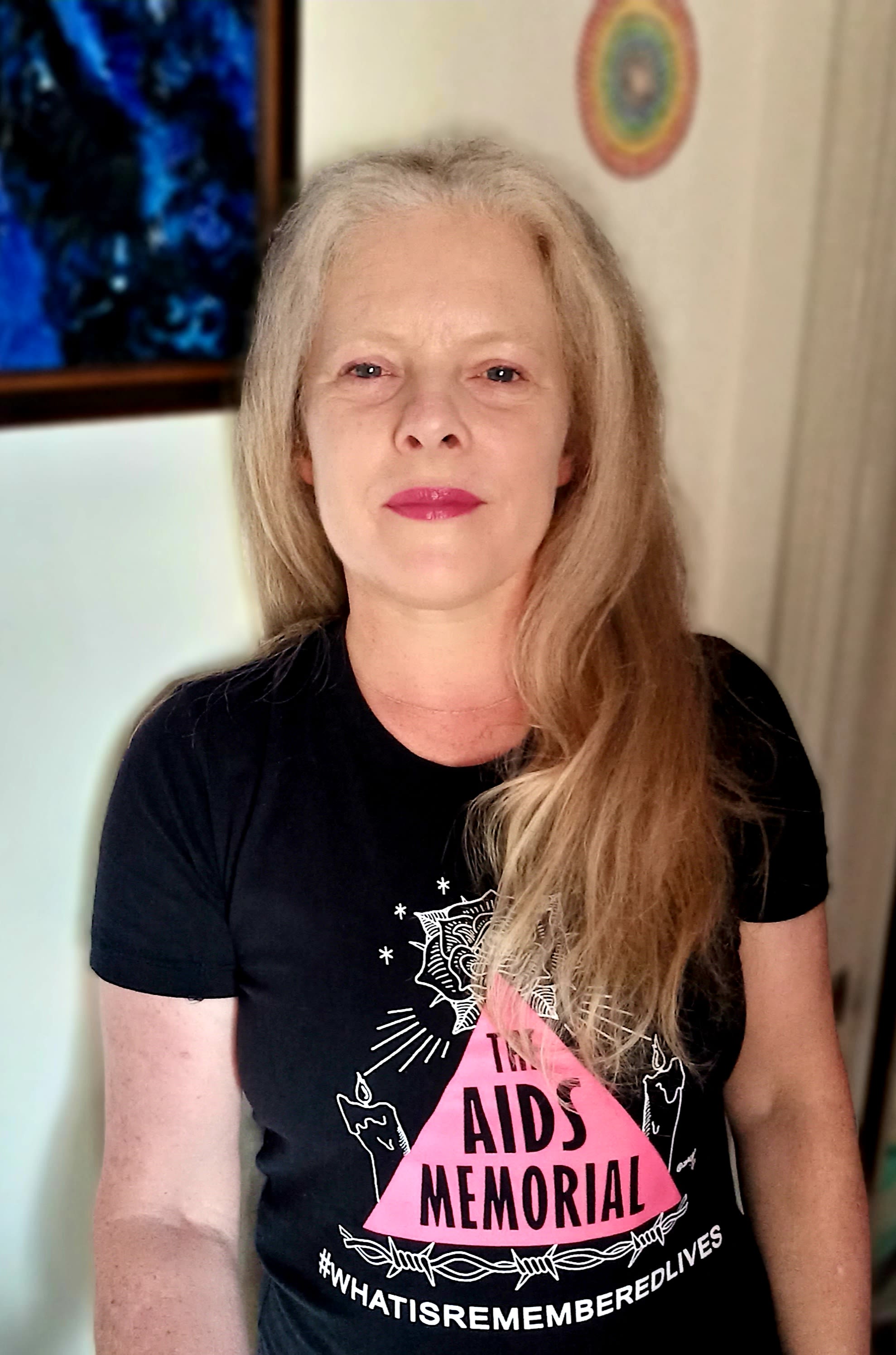
Emma Cole, Founder of Positive Voice Talks. Credit - Emma Cole.
Emma Cole, Founder of Positive Voice Talks. Credit - Emma Cole.
Existing HIV/AIDS memorials in the UK
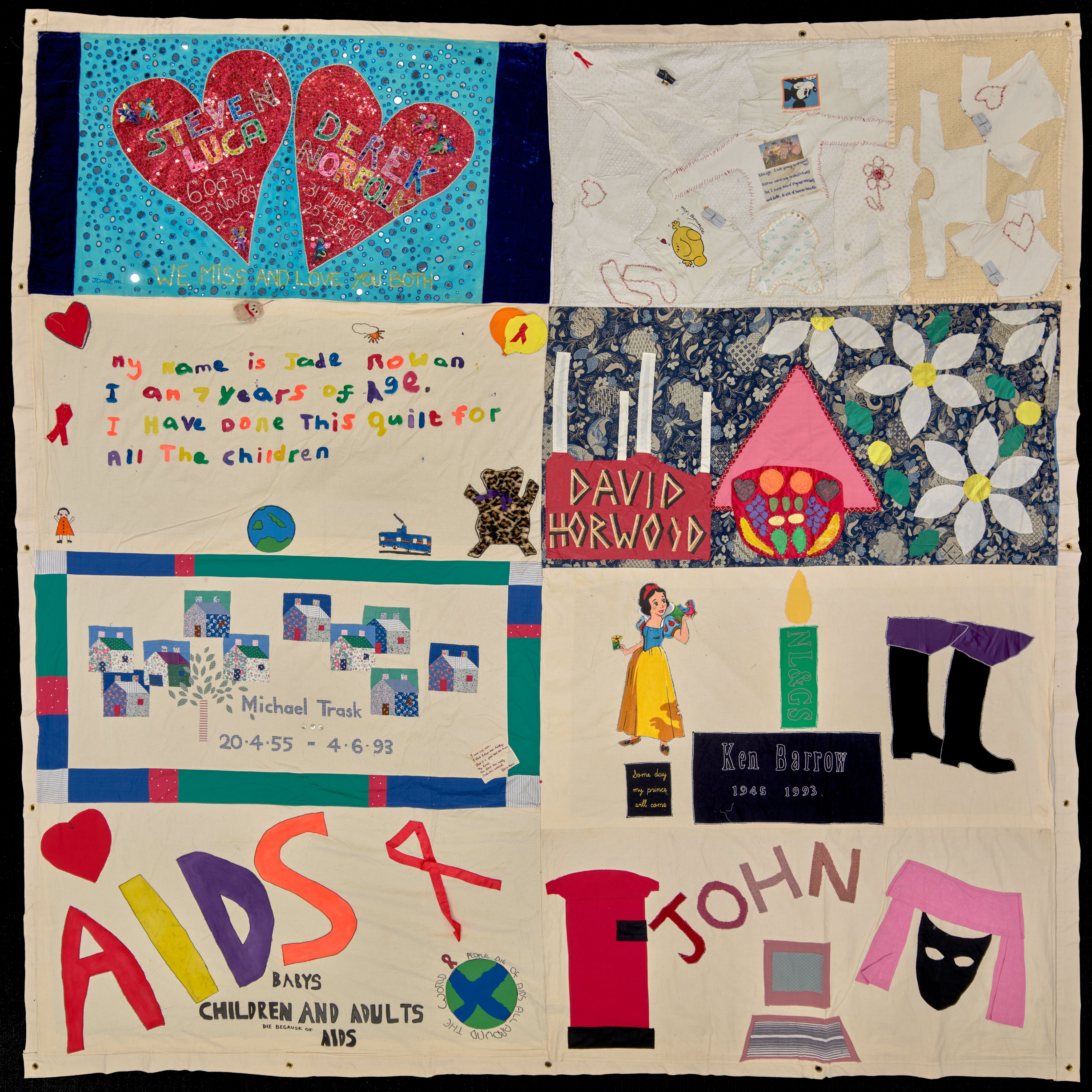
Due to the lack of permanent HIV/AIDS memorials in the UK, other forms of memorialisation have historically been created to commemorate the lives lost to HIV/AIDS. Of these, one of the most prominent is the UK AIDS Memorial Quilt.
The roots of the quilt started in 1987 with long-time human activist Cleeve Jones in San Francisco. Jones' goal was to create a memorial for those who had died of AIDS, and to therefore help people understand its devastating impact.
He went on to found the NAMES Project AIDS Memorial Quilt and in June of 1987, he created the first panel of the quilt in memory of his friend Marvin Feldman.
A UK branch was later formed, and the UK AIDS Memorial Quilt tells the stories of many of those who died from the epidemic in the 80's and 90's. Each individual panel on the quilt commemorates someone who died of AIDS and has been lovingly made by friends, lovers or family members.
The quilt had been in storage for several years and was at risk of deterioration and/or being lost. Hence, The UK AIDS Memorial Quilt Partnership, a coalition of seven UK HIV Support Charities, was founded to raise awareness of the quilt.
The quilt is now stored at Positive East, a leading London community-based HIV charity that provides a wealth of support for individuals who are HIV-positive.
Ian Montgomery, head of fundraising and communications at Positive East, spoke of the undeniably powerful role of the quilt.
He said: "The quilt is an incredibly moving memorial and reminds us of the humanity behind HIV/AIDS.
"One of the things that moves me the most is looking at the years on the quilt that show when people lost their lives.
"Some of them are so close to when we started getting effective, lifesaving treatment and it just makes you think - what if? If only they'd been able to get that treatment sooner, it's heartbreaking."
Ian also spoke of the discussions currently taking place amongst the AIDS Memorial Quilt Partnership surrounding the ethics behind conserving the quilt, debating whether or not to modify or alter existing parts of it that are deteriorating over the years.
The AIDS Memorial Quilt Partnership are also in the process of working with friends and family to create accompanying individual video and audio testimonials to give more context to the lives commemorated.

Credit: UK AIDS Memorial Quilt Partnership.
Credit: UK AIDS Memorial Quilt Partnership.
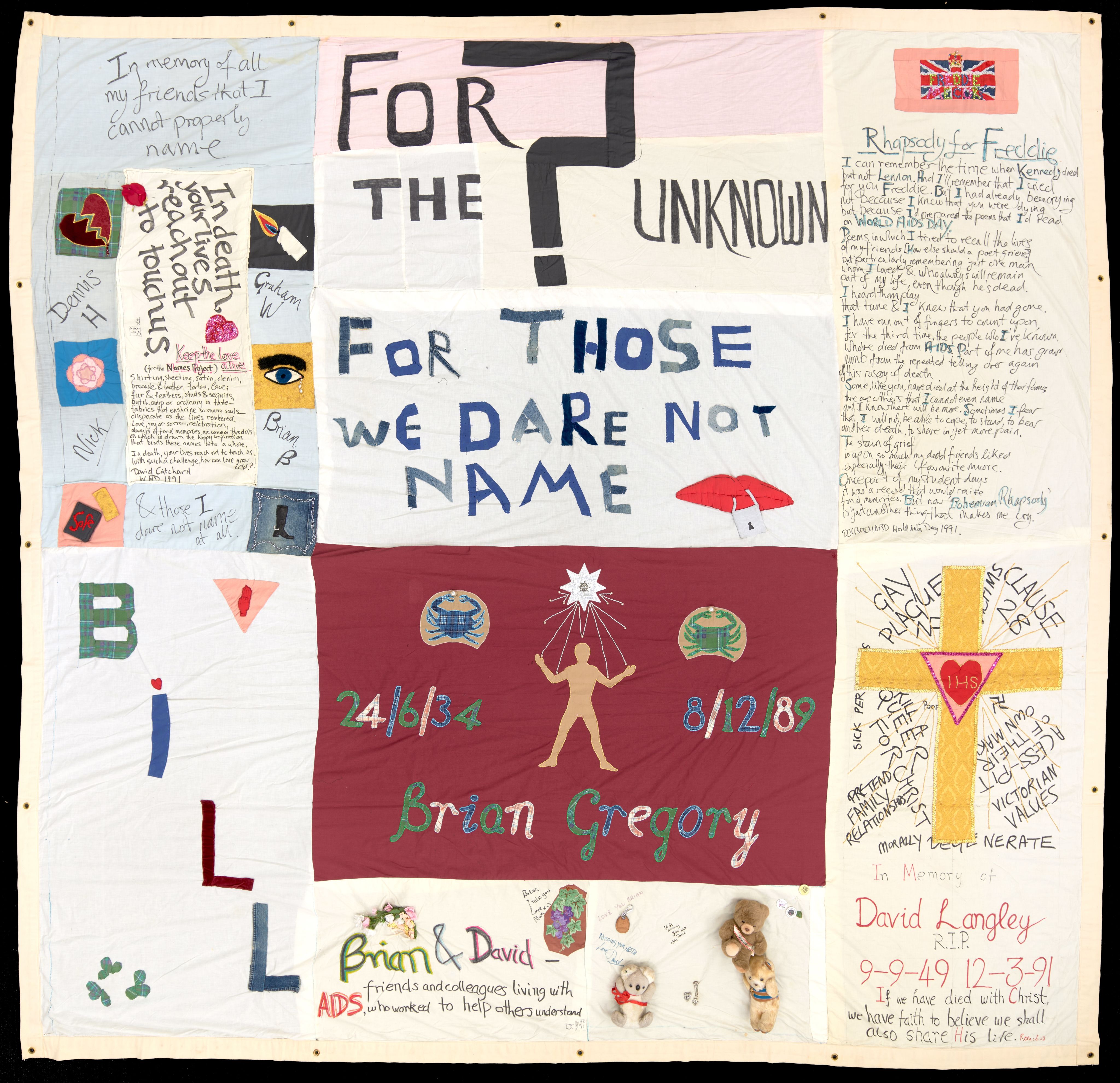
Credit: UK AIDS Memorial Quilt Partnership.
Credit: UK AIDS Memorial Quilt Partnership.
The Experience of living with HIV in the Present Day
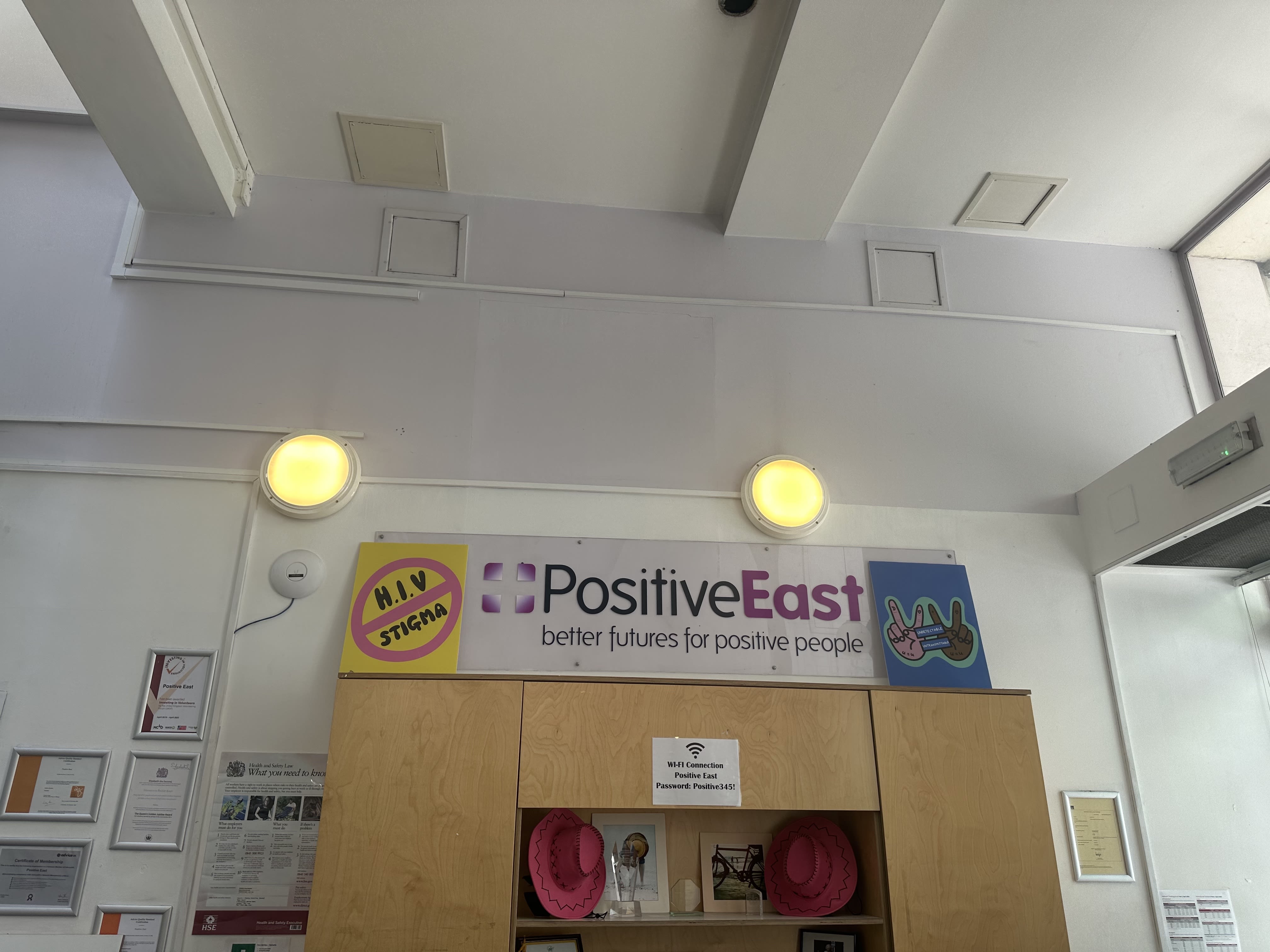
Acknowledging the history of the HIV/AIDS movement is vital in twofold. Not only does it provide for the necessary space to reflect on the lives lost to HIV and AIDS, but it also allows us to realise how far we have come, both in terms of medical treatment and socially.
Jack Summerside, Head of Health and Wellbeing at Positive East, said stigma still remains one of the biggest challenges that the people who go to the charity for support face. He attributes this largely to a lack of education and understanding of HIV as it is now.
However, Summerside also speaks favourably about how things are changing for the better - people are not only just living with HIV now, but they are also thriving.
A key aspect of this is government support, with the UK Government currently working towards the goal of zero HIV transmissions by 2030. Such strategy is part of the Joint United Nations Programme on HIV/AIDS and aims to ensure that by 2030 90% of people are diagnosed, 90% diagnosed are receiving anti-retroviral therapy and 90% of people on treatment are virally suppressed and unable to pass on the infection. The latter is often dubbed by campaigners as 'U=U' (undetectable = untransmittable).
Cole also speaks favourably about the changing face of HIV in the UK.
She said: "For me it's important to stress that the history is not forgotten, but I also want people to understand how different a HIV diagnosis is today, it's not a death sentence and it's also not a moral issue, you can live a long life."
All HIV treatment is free and done through the NHS, with antiretroviral treatment becoming incredibly sophisticated. Looking forward, a plethora of new treatment options are also being explored, including monthly injectables.
Charities such as Positive East seek to aid medical adherence and ensure that people have the psychological support to take their medication.
Indeed, data conducted by the UK Health Security Agency suggests that medical adherence is on the rise, with the number of men in London being seen for HIV care increasing from 2013 to 2022 by 11%. Likewise, the number of women being seen in 2022 had increased by 7% since 2013.
Jack Summerside, head of health and wellbeing at Positive East, speaks about the importanace of acknowleding history and how far we've come
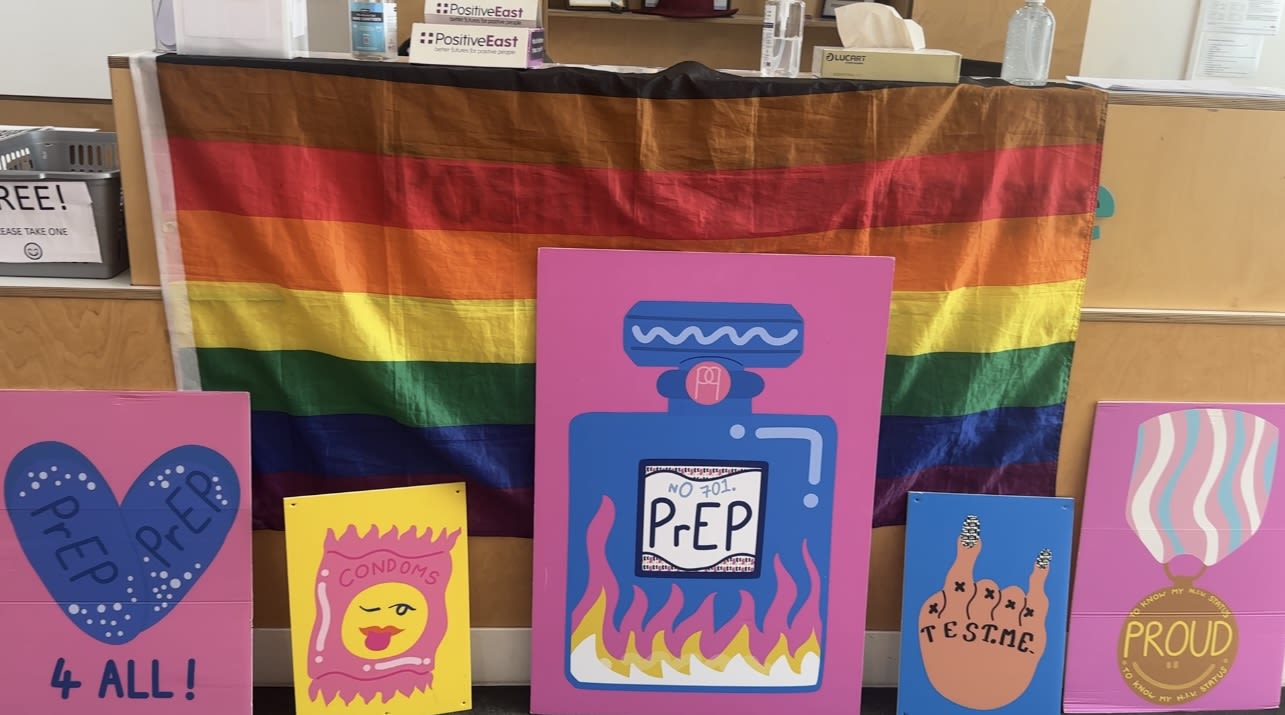
Credit: Ruth Stainer
Credit: Ruth Stainer
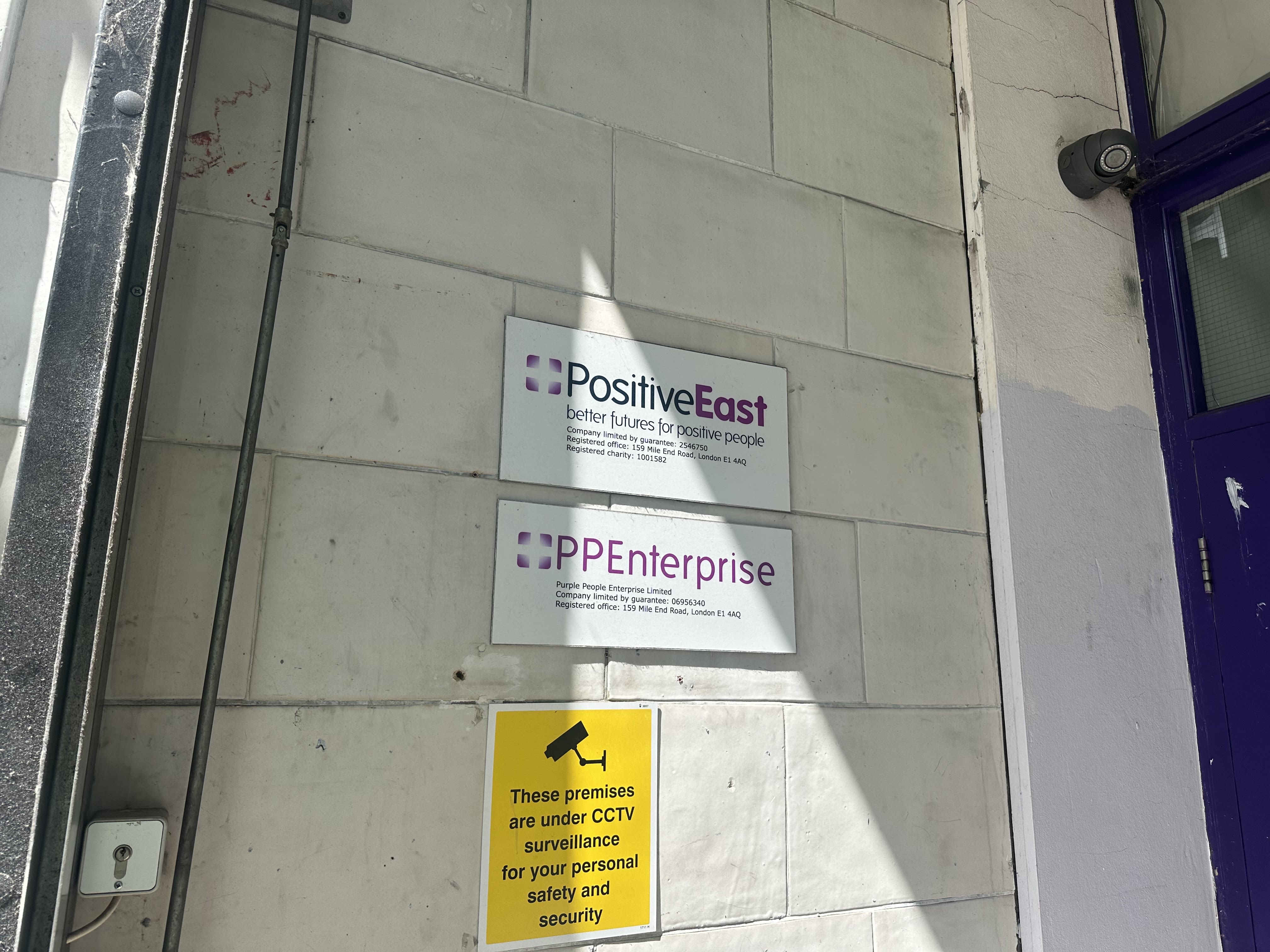
Credit: Ruth Stainer
Credit: Ruth Stainer
Looking forward towards the conservation of HIV/AIDS UK history
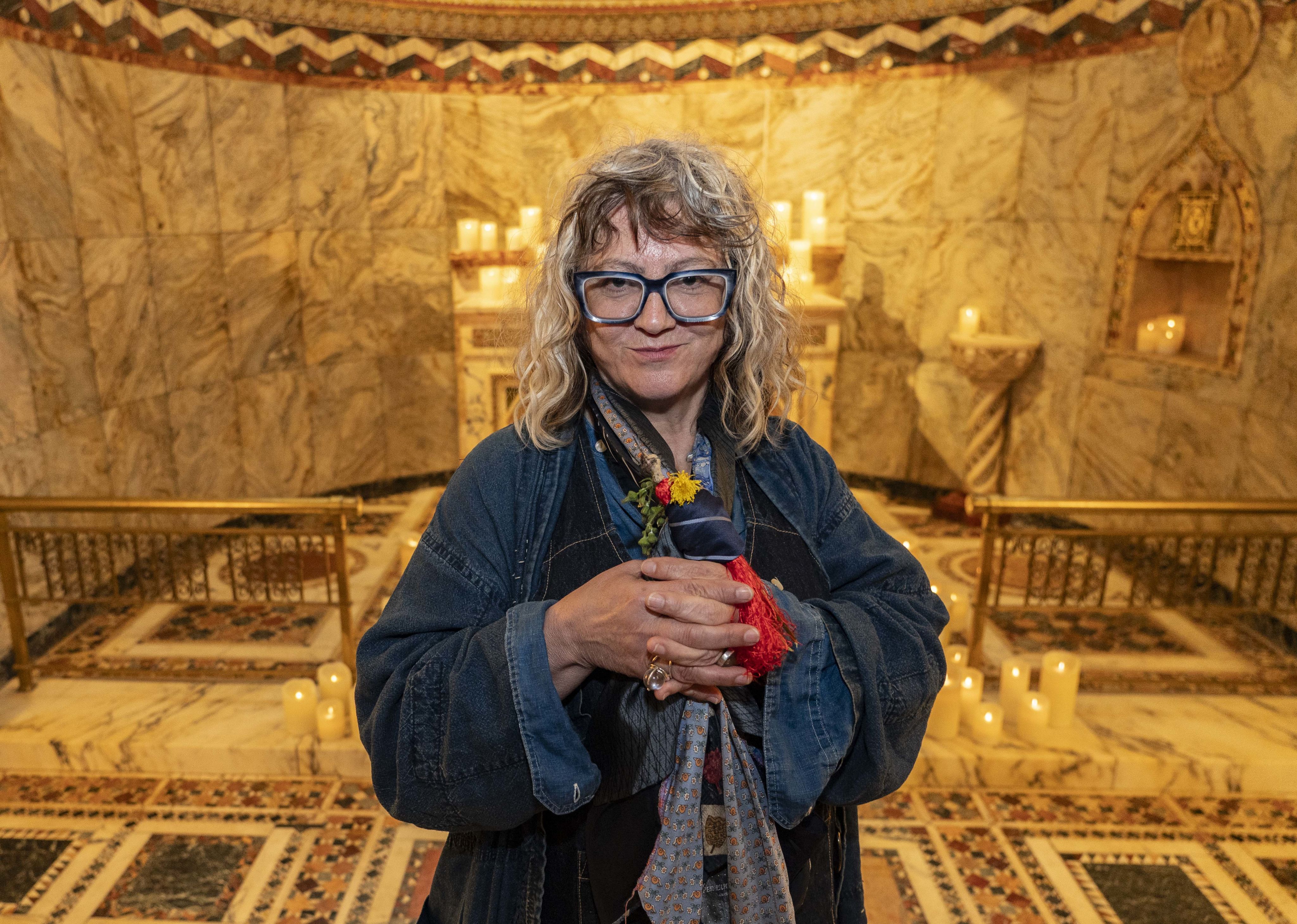
Moving towards a permanent HIV/AIDS memorial in London marks a tremendous step in the right direction for conserving HIV/AIDS history in the UK, but much work is still needed to be done.
Positive East continue to work as part of The AIDS Memorial Quilt Partnership in conserving the AIDS Memorial Quilt, and welcome any friends and family who would like to come and commemorate their loved ones to visit their centre.
Donations to the future fundraising work of the London AIDS Memorial can be made here.
